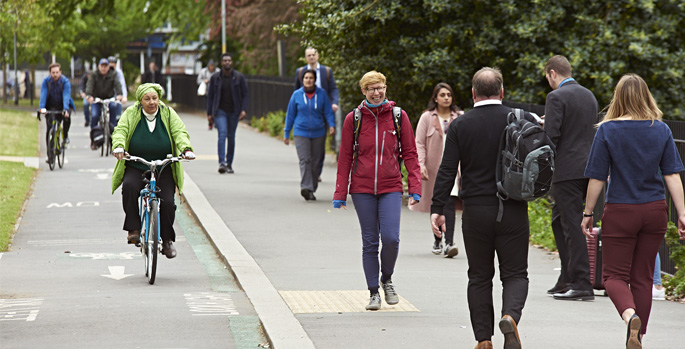FM Conway and TfL launch asphalt trial

Leading infrastructure services company FM Conway has launched a trial with Transport for London (TfL) to test the use of a high recycled asphalt mix for the surface course of a strategic road.To address the challenges created by the geological scarcity of High PSV aggregates, TfL has appointed FM Conway to lay an asphalt surface course containing 50% recycled aggregate constituents on the A1 Mill Hill.FM Conway works closely with TfL on a number of infrastructure contracts across the capital and has a proven capability to recycle asphalt pavements through its two specialist asphalt plants at Erith and Heathrow.The unique trial, which started on 22 March, will be carried out on three lanes of the strategic highway. The recycled content mix will be monitored against primary aggregate asphalts to ensure its durability and retention of a skid resistant surface. The mix is fully compliant with clause 942 of the Specification for Highway Works and incorporates FM Conway’s selected binder and aggregates, as well as Arizona Chemical’s Sylvaroad binder performance additive.The trial has the potential to transform the way Britain’s strategic road network is maintained. At present, it is not unusual to incorporate 50% recycled content into the base and binder layers. Due to concerns that high recycled content mixes cannot provide adequate skid resistance and durability, the recycled content of surface course mixes is traditionally limited to around 10%. TfL and FM Conway believe this trial will dispel such doubts and provide a sustainable and economic option for maintaining the nation’s strategic routes.Dana Skelley, TfL’s director of asset management, said: “We’re really pleased to be teaming up with FM Conway and Arizona Chemical on this trial for an environmentally friendlier way of resurfacing London’s roads. This unique trial will help us test how durable recycled asphalt is with a view to efficiently implementing this process across the highway network in the near future.”Tim Metcalf, aggregate and asphalt director at FM Conway, said: “This is an exciting development for the strategic road network. We’re confident that the trial will answer any doubts about the use of high recycled content asphalt for both surface courses and the base and binder courses of strategic roads. High recycled content asphalt not only meets specified safety requirements, but can support the highways industry in its drive to be more resource efficient.”































